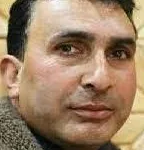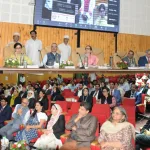Srinagar, Aug 23: Thirty-nine years after losing their breadwinner to a bomb blast in Srinagar’s exhibition ground, the family of a young mechanic has won a hard-fought legal battle, with a court ordering the government to pay them compensation and interest for its negligence.The ruling was delivered on August 20 by 2nd Additional District Judge Swati Gupta, who ordered the state authorities to pay Rs 3.24 lakh in compensation along with 8 per cent annual interest from 1986, the year the suit was filed, until the amount is settled. In case of default within two months, the court ruled, an additional 4 per cent interest will accrue.The case pertains to 22-year-old Avis Ahmed Shah, who succumbed to injuries on October 14, 1985, a day after a crude bomb ripped through the Radha Theatre section of the government-run exhibition grounds in Srinagar.The explosion, which witnesses recalled happened around 8:45 pm, left several injured and caused widespread panic at one of the Valley’s most popular public events. Avis, a trained mechanic earning Rs 700–800 a month, was the main breadwinner for his widowed mother and five siblings.The court’s 20-page, 41-point verdict came after one of the longest-running civil suits in Srinagar courts, filed initially in May 1986 by Avis’s father, Mohammad Yousuf Shah.He had sought Rs 3.84 lakh in damages, arguing that negligence by state agencies responsible for entry checks and safety arrangements led to his son’s death. Yousuf pursued the case for more than a decade before his death in 1998, after which his widow, Khatija, and children Showkat, Naqeeb, Mushtaq, Tahmeena and Zahida continued the legal battle.The government opposed the claim, maintaining that the blast was a terrorist act carried out by an underground group calling itself the “Holy War Fighters”, and that the state had taken all possible security measures. However, Judge Gupta rejected this argument, ruling that the state could not shirk its duty of ensuring security at public events it organised and profited from.“When the life of a citizen is lost in circumstances involving violence caused by terrorism or due to the failure of the state machinery to provide adequate protection in a public place, the deprivation of life cannot be brushed aside and treated as a mere tragedy,” the court observed, invoking Article 21 of the Constitution which guarantees the right to life.Court records reveal harrowing testimonies from eyewitnesses. Farooq Ahmad Reshi, who was present at the exhibition, narrated that Avis was critically wounded and rushed to Sher-i-Kashmir Institute of Medical Sciences (SKIMS), Soura, where he died the following morning.Another witness, Fayaz Ahmad Reshi, who had accompanied Avis, said frisking at the gates was “strict”, yet a crude bomb still made it inside. “If there had been proper checking, no blast would have taken place,” he admitted during cross-examination in 1999.Avis’s brother, Naqeeb Ahmad Shah, told the court that his younger sibling had been a skilled mechanic since his teenage years and would have been earning around Rs 15,000 a month had he lived. The family stressed that his sudden death had left them destitute, with their mother and younger siblings struggling for survival.Judge Gupta’s verdict noted that the origin of the blast, whether terrorist or otherwise, was secondary to the state’s duty to ensure foolproof security in public spaces where citizens gather under an implicit assurance of safety. She observed that claims of helplessness by law enforcement projected an image of ineffectiveness and risked eroding public confidence.In arriving at the compensation amount, the court applied the multiplier method to calculate the family’s financial loss, reducing the claim from Rs 3.84 lakh to Rs 3.24 lakh. However, the addition of nearly four decades’ worth of interest means the payout will now be substantially higher than the original claim.
Search
Archives
- August 2025
- July 2025
- June 2025
- May 2025
- April 2025
- March 2025
- February 2025
- January 2025
- December 2024
- November 2024
- October 2024
- September 2024
- August 2024
- July 2024
- June 2024
- May 2024
- April 2024
- March 2024
- February 2024
- January 2024
- December 2023
- November 2023
- October 2023
- September 2023
- August 2023
- July 2023
- June 2023
- May 2023
- April 2023
- March 2023
- February 2023
- January 2023
- December 2022
- November 2022
- October 2022
- September 2022
- August 2022
- July 2022
- June 2022
- May 2022
© 2022 Foxiz News Network. Ruby Design Company. All Rights Reserved.






